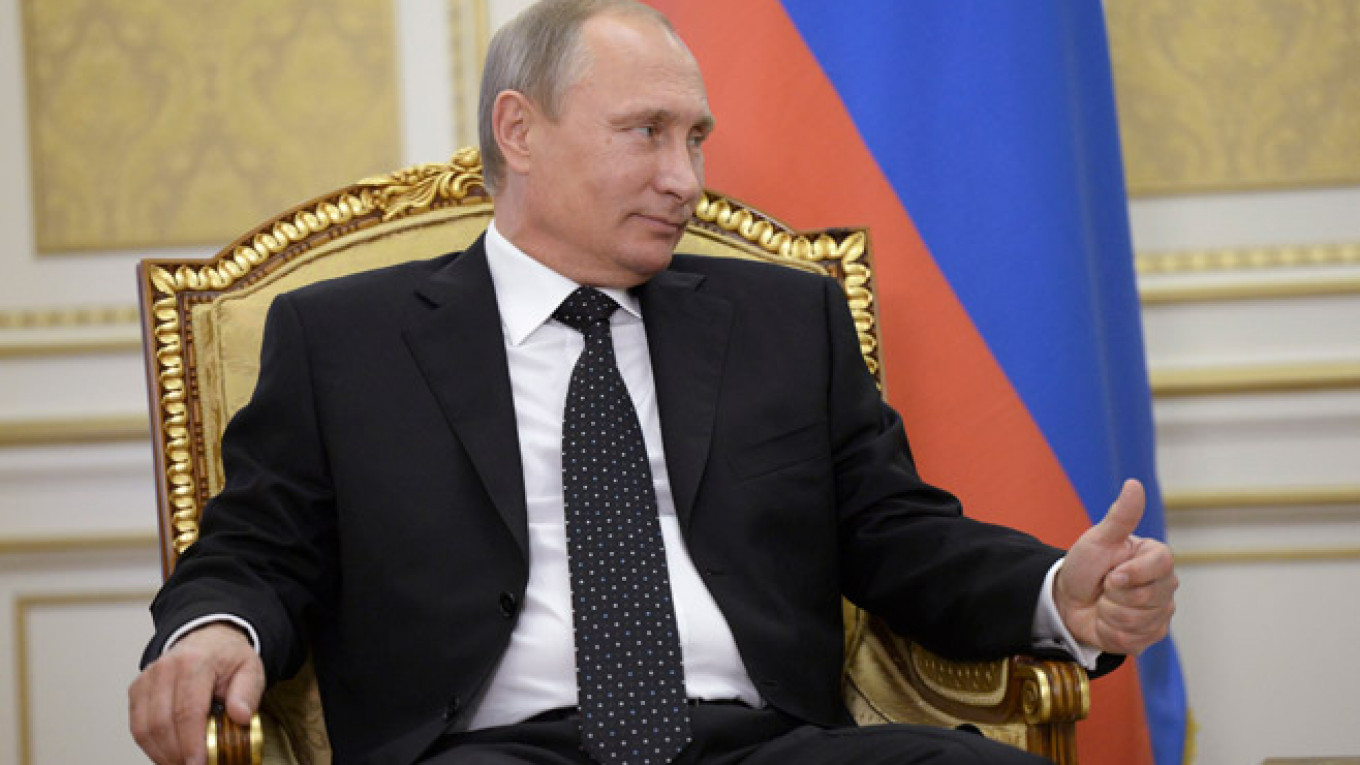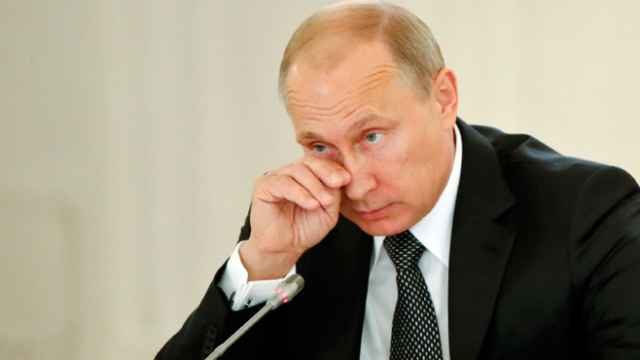A common criticism of the current Russian government is its tendency to act as an overseer of the nation rather than its representative. Accordingly, the key question concerning Russia's political future is when — or whether — the people will ever take control.
More than any reform of the parliament or government, this issue hinges on the development of grassroots activism and self-governance, practices that are taking shape slowly and painfully in a country with deep-rooted authoritarian traditions, experts say.
Grassroots activism, a prerequisite for democracy, is not an alien concept to Russia and has undergone a renaissance in recent years across the whole spectrum of society, from Muslim communities to motorist rights groups.
But the Kremlin has moved to suppress or control on-the-ground activity, which could stint its development for decades, experts polled by The Moscow Times said.
All experts agreed that Russia's political culture would not be modernized until civic activism and local self-governance become mainstream, but none could say how long it would take, given the central government's efforts to suppress it.
Journalist and self-governance advocate Pavel Pryanikov was pessimistic about a possible time frame, predicting no major change in the next couple of decades.
"It's a slow and painful process," Pryanikov, who runs the website Russkaya Planeta (Russian Planet), said Tuesday.
Independent political analyst Sergei Shelin simply said the rise of civic activism was "a hope, not a forecast."
But Alexei Roshchin, a social psychologist working for the political consultancy the Center for Political Technologies, said the process was irreversible, however slow or obstructed.
"In Soviet times, the state managed to curb grassroots activism because it had total control [of society]," he said. "But they don't have anything like that now."
A Historical Precedent
Though Russia is better known for its tsars, dictators and the authoritarian Politburo, it had, in fact, a powerful self-governance institution — the "zemstvo" — in the last 50 years before the 1917 Revolution.
Elected zemstvo institutions — which, though dominated by nobles, gave representation to all classes of society — handled a wide variety of issues in the provinces, including taxation, education, health care, postal services, insurance, statistics and road building.
Despite its apolitical functions, the zemstvo, a hotbed of provincial intelligentsia, produced prominent political activists who became the backbone of the liberal opposition in late imperial Russia.
But their efforts were not enough to salvage and modernize the empire, which was eventually destroyed by the Bolsheviks, who put an end to the zemstvo.
Soviet rule was a bad time for grassroots activism, which was only allowed under state or Communist Party supervision, but the restrictions were removed after the Soviet Union's demise.
Though change was slow to happen, the media began talking about a rise in grassroots activism in Russia after the unprecedented relief effort against wildfires in 2010, which attracted thousands of volunteers filling the void left by the authorities' helplessness.
Admittedly, no figures are available for numbers or dynamics of grassroots groups in Russia. A nationwide study by state-run pollster VTsIOM in 2012 showed that 53 percent of Russians had participated in volunteer activity, but the state-run Public Opinion Foundation put that figure at 20 percent later the same year.
Existing groups are also largely unpolitical, but any kind of independent public activity sooner or later translates into political involvement, analysts consulted for this article said.
Kremlin Control
A reform to boost municipal self-governance was among the key undertakings of President Vladimir Putin at the start of his reign in the 2000s.
But he never saw it through and later reversed his policies, working hard to put any activity on the ground under the control of his power vertical.
Regional elections in Russia are plagued by restrictions, both official and unofficial, and gubernatorial elections were canceled altogether in 2005 and only partially restored in 2012.
Moreover, regional and municipal authorities have almost no say in taxes and income, which makes them dependent on the federal government and more likely to cater to it than to the public.
The Kremlin has also regulated volunteer groups, most famously through the notorious 2012 law declaring NGOs "foreign agents" — a Soviet-era derogative tag — and miring them in red tape if they receive any funding from abroad (even private donations from Russian emigres count) and are involved in "political activity," defined vaguely enough to have been applied to a bird conservancy and an association of cystic fibrosis patients.
A separate bill to regulate any kind of volunteer activity in the country was introduced to the State Duma last year, despite protests by grassroots groups, and is still pending review.
"The government has worked to destroy any traces of self-organization in the past couple of years," said Pryanikov of Russkaya Planeta.
And governors have unofficial instructions to keep the number of NGOs in their regions as low as possible, said Roshchin of the Center for Political Technologies.
"Bureaucrats are averse to civic activists because recognizing them means sharing power and letting them in on the decision-making process," said Roshchin, who also runs the popular LiveJournal blog Sapojnik.
Believers, Motorists and Radicals
And yet grassroots activity not controlled by the government continues to spread, experts agree, though they list different groups as the main trailblazers of the process.
Pryanikov said religious communities, especially Muslims and protestants, are slowly accumulating civic functions, drifting ever closer in purpose to the zemstvo institutions of old.
Independent analyst Shelin said religious radicals and ultranationalists are also increasingly organizing themselves into groups, which does not bode well for the future. Russian volunteers spearheaded the recent pro-Russian insurgency in eastern Ukraine and staged a nationwide support campaign for the bloody rebellion, widely seen internationally as an imperialist escapade by Russia.
But Roshchin said lobby groups standing for practical interests are more likely to be community builders.
He named homeowner associations, parents' committees at schools, consumer rights groups and labor unions — currently defunct or loyal to the Kremlin — as examples, while Pryanikov added motorist groups to the list. Russian motorists have staged numerous protests, including against car import bans and road privileges for officials, proving themselves a highly organized and active community.
"We won't be entering the 21st century until we have public self-organization," Shelin said. "But so far, it has been one step forward, two steps back."
This is the second in a series of analytical articles and editorials in The Moscow Times about Russia's long-term strategic prospects.
Contact the author at a.eremenko@imedia.ru
A Message from The Moscow Times:
Dear readers,
We are facing unprecedented challenges. Russia's Prosecutor General's Office has designated The Moscow Times as an "undesirable" organization, criminalizing our work and putting our staff at risk of prosecution. This follows our earlier unjust labeling as a "foreign agent."
These actions are direct attempts to silence independent journalism in Russia. The authorities claim our work "discredits the decisions of the Russian leadership." We see things differently: we strive to provide accurate, unbiased reporting on Russia.
We, the journalists of The Moscow Times, refuse to be silenced. But to continue our work, we need your help.
Your support, no matter how small, makes a world of difference. If you can, please support us monthly starting from just $2. It's quick to set up, and every contribution makes a significant impact.
By supporting The Moscow Times, you're defending open, independent journalism in the face of repression. Thank you for standing with us.
Remind me later.







